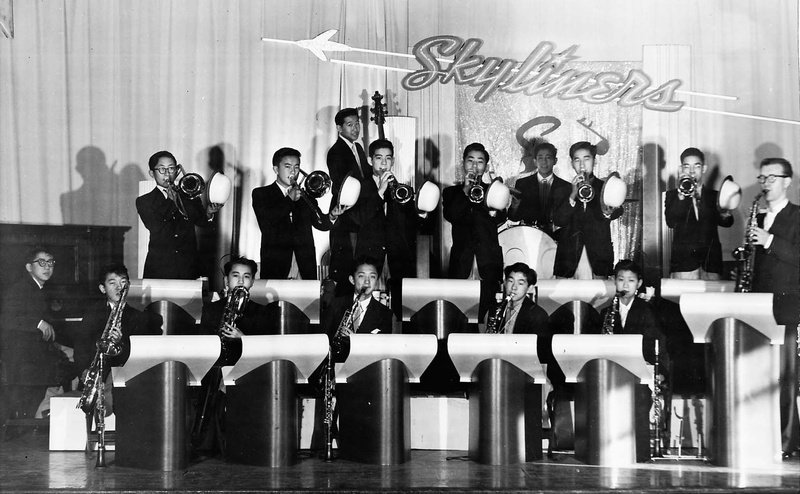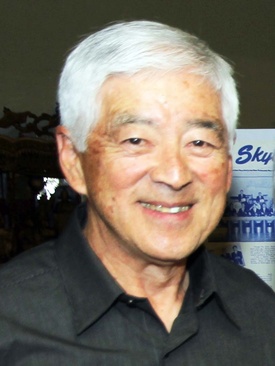When people ask me what my favorite kind of music is, I often see a shocked look on their faces when I explain that I enjoy the type of jazz music that is often associated with big band musical ensembles. Not rap, a popular favorite with today’s teens. Not hip-hop. Nor pop or indie or rock music. Yes, jazz infused with big band music—the kind that was popular during the Swing Era from the early 1930s to the late 1940s.
Of course, if this question was posed to a senior citizen who grew up around that era, it would be a perfectly acceptable answer and no eyebrows would be raised. But, I am only fifteen years of age and in the ninth grade, which probably explains their sometimes startled reactions.
So, how did I become interested in this type of music?
Although everyone in my family enjoys listening to music, they have never gravitated toward one genre or another. All types of music are played in our house.
I remember listening to jazz and big band music when I was in middle school and was instantly attracted to its smooth, rhythmic sounds. This past summer, I stumbled across some saxophone music played by Chad Lefkowitz-Brown (“Chad LB”) on the internet. It was that “it” moment when the connection between jazz and big band music really clicked for me.
Also known as “Chad LB,” Lefkowitz-Brown has toured the world as a bandleader with superstars ranging from Chris Botti to Taylor Swift. One of his gigs this past winter was at Jazz Alley in Seattle and I was fortunate to see and enjoy his live performance.
Over the years, during on-and-off discussions with my dad, I discovered that my grandpa, Paul Uyeda, had played big band music when he was a teen. The family connection was the moment I realized that expanding my knowledge around this type of music was something I wanted to pursue.
I later found out that the name of the band my grandpa played in was called the Lotus Skyliners. When he played in the band, he was about the same age as I am now. Although I started out playing the clarinet in the fifth grade, I eventually switched to the tenor sax, the exact same instrument he played.
Knowing all these newfound facts, I was curious about what it must have been like to play in the band during my grandpa’s generation, especially during the turmoil that existed during the early 1950s. As luck would have it, my mom and dad told me that a book was being published this year about the Lotus Skyliners.
A few emails and phone calls later, I was able to interview Vic Kihara, who was the lead trumpeter in the band from 1953 to 1956. Mr. Kihara was very gracious with his time and provided answers to some of the questions I had been wondering about. Here are some excerpts from our discussion.
* * * * *
Who exactly were the Lotus Skyliners? And, what role did they play in healing the Japanese American community after World War II?
The Lotus Skyliners was a dance band composed of mostly JA youths. It was started in 1953 and was sponsored and financed by the Seattle Buddhist Church as one of its youth activities. The band helped the kids and their parents return to lives of normalcy after the disruption caused by their incarceration in the concentration camps. It provided the kids with an identity and a sense of pride in their accomplishments, which helped heal the terrible ordeals they had experienced.
Did you feel like the band really “connected” with the audience when they performed?
Whenever the Skyliners played, each member felt a definite connection with the audience. That’s what performances are all about — to share with others whatever it is you are creating, whether it is music, dance or art. By sharing our talents, we’re trying to establish a positive relationship when we interact with each person in the audience.
My dad told me that this year is the 70th anniversary of the band’s inception. Are there any special memories that stand out now that you’ve had a chance to look back and reflect?
The Skyliners experience was unforgettable for all the band members. At a stage in their lives when memories are important, the members are anxious to share these with their friends, relatives, and most importantly, younger generations like yourself. With the energy and spirit that was typical of the Skyliners, the former band members and some of their close friends decided to write a book about their unique experiences.
After all these years, I still recall the excitement that our band created when we played in front of appreciative audiences. From the first tune-up to the final “Good Night, Sweetheart” number, the memories of these sessions are truly unforgettable.
The band was led by Don Kinsley, a Caucasian band leader, and yet the band consisted mostly of young JAs in their teens. Did this scenario ever seem a little strange to you and the other band members?
Don was a schoolteacher. Many of us were students who were just about your age in his music classes at Washington Junior High School. When the Seattle Buddhist Church selected him to form and lead a youth dance band, many of us joined because we already had experienced his talent for teaching. He was hard-working, patient, enthusiastic and an outstanding leader of youth. Because of that, we never thought of him as the “White guy” leading a bunch of Asians. Don was truly one of us.
The book consists of many memories contributed by former members of the Skyliners. When reading their stories, I hope you’ll get a true sense of what it meant for each one of us to be a part of the band. After you’ve read the book, it will become evident that the memories and experiences of the past helped shape the future lives of both the Skyliners’ band members and their families.
Have you kept in touch with other former band members or any of the people who attended your dances when you performed back in the 1950s and 1960s?
Many former band members have maintained strong friendships after our Skyliners years. We have eagerly shared news about college, marriage, family and career but also have experienced sorrow when a member has passed away. In that sense, the Skyliners were, and still are, an important part of each of our lives.
As someone from a younger generation, I am wondering how you feel about the evolution of music since the “big band” music days? Is there still a place for that kind of music today?
Jazz and popular music are not static; they evolve with the musicians who create it and the audiences who popularize it. Big band music is still alive and thriving, with musicians often playing the same songs from decades ago but with new perspectives.
A good example is the Steven Feifke big band, with young jazz musicians playing familiar songs but with advanced arrangements. Other young musicians like Christian McBride, Samara Joy, Veronica Swift, and Benny Benack are proving that jazz is alive and well.
Of note are Japanese musicians like Hiro Kawashima and Takeshi Ohbayashi who continue the strong influence of jazz on the Japanese music scene. The work of all these young jazz artists can be readily accessed on YouTube, which is a key factor in keeping the art form alive and vibrant.
I heard there will be a book signing event called “Unforgettable — The Lotus Skyliners Story,” which will be held on Sunday, June 11 from 3 – 5 p.m. at the Seattle Betsuin Buddhist Temple. My band friends and I are certainly planning to attend. What do you have in store for those who show up?
I encourage everyone — young and old — to come to our book signing event. It will be held at the same venue where the Skyliners rehearsed and performed. It will be a festive event with live music by the Pat & Rich2 Quartet, who will be playing a lot of well-known jazz standards. While listening to some favorite songs, people will be able to socialize with old friends and purchase an autographed copy of the Lotus Skyliners book. I hope to see you and a large gathering of people who want to help us celebrate our once-in-a-lifetime journey!
Since my interview with Mr. Kihara, I participated in the Starbucks-sponsored “Hot Java Cool Jazz” festival at the Paramount Theatre in Seattle on March 31. My Bellevue High School Jazz Band performed with other bands from Garfield, Mount Si, Roosevelt, and Bothell schools. It was a tremendous experience, more than I could have imagined going into it.
At this time in my life, it reinforced in me that I am following a path that will bring me much joy and fulfillment. My long-term goal is to become a professional musician. Time will tell whether that dream is fulfilled but I certainly have my current sights keenly focused on it.
*This article was originally published in The North American Post on April 29, 2023.
© 2023 Kaiden Paul Uyeda




